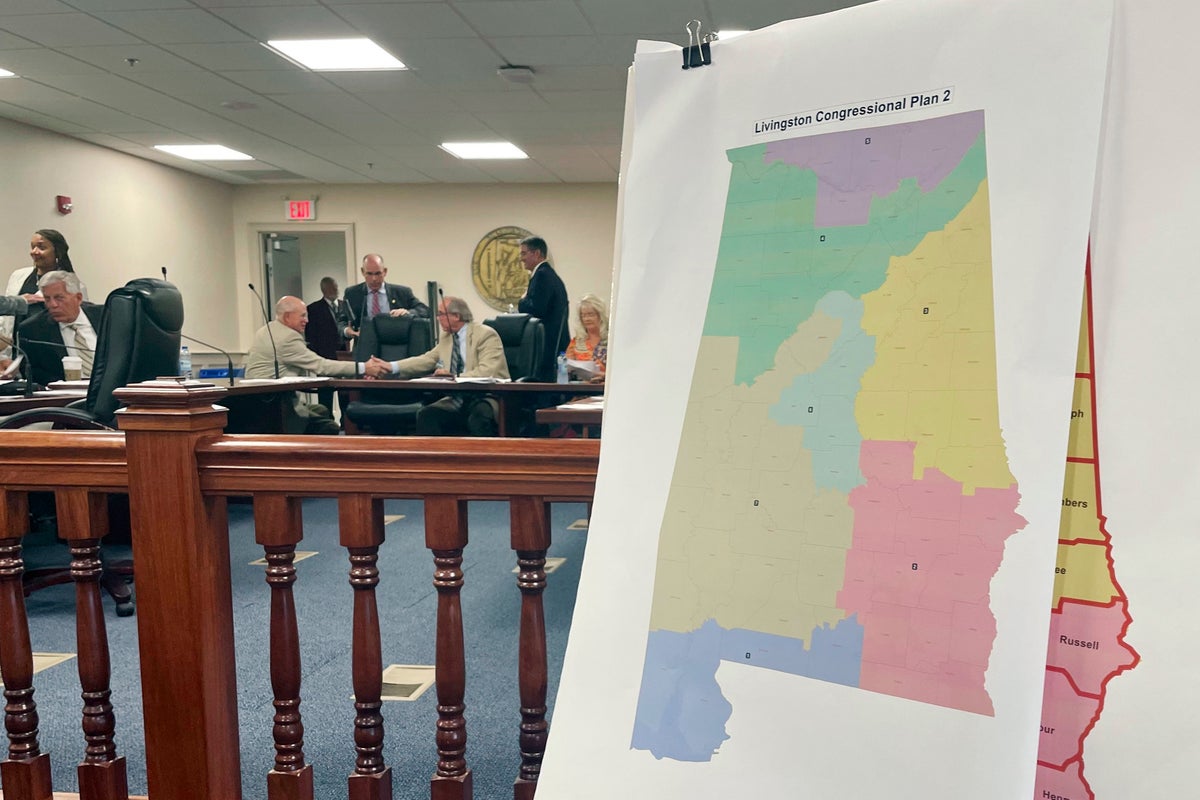
A federal court has selected a new congressional map for Alabama that will significantly increase Black voting power in the state and likely flip one of the state’s seats to a Democratic representative.
The decision on 5 October comes from the same three-judge panel that ruled that Republican-drawn boundaries discriminated against Black voters in violation of the Voting Rights Act, a challenge that made its way to the US Supreme Court, which has repeatedly rejected the state’s GOP-led attempts to keep its discriminatory map.
Newly drawn lines will maintain the state’s sole district with a majority Black voting population – currently represented by Democratic US Rep Terry Sewell, the state’s only Black member of Congress – and it will create a second district with a Black voting age population of just under 49 per cent.
Those new boundaries likely mean that another Black Democratic candidate will represent the state in place of a white Republican.
A landmark decision this summer from the nation’s highest court in Allen v Milligan effectively ordered Alabama’s GOP-dominated state legislature to go back to the drawing board and rewrite the state’s congressional map.
The state’s map had previously packed most of the state’s Black residents, who make up more than a quarter of the state’s population and who are more likely to vote Democratic, into one single congressional district out of seven.
When ordered by federal courts and the Supreme Court to draft a new map, Alabama Republicans instead maintained the status quo with a map with only one district in which Black voters in the state have a chance of electing a likely candidate of their choice. Courts once again rejected it.
A voter leaves a polling station in Selma, Alabama in March 2020.— (REUTERS)
Last month, the Supreme Court once again rebuffed Republican leadership’s attempts to block the court-appointed redrawing of the state’s congressional districts, paving the way for a new proposal to get the court’s approval ahead of 2024 elections – marking a major victory for voting rights advocates.
Jania Nelson, president of the NAACP Legal Defense Fund, said the decision “delivered a long-awaited victory for our democracy”.
NAACP LDF attorney Deuel Ross, who argued the Allen v Milligan case before the Supreme Court last year, said the latest ruling means that Black voters “will have a real opportunity to elect [two] members of Congress for the first time ever”.
The new map, in place through at least 2032, could also reduce the GOP’s attempts to hold its slim majority in the House in next year’s critical elections.
Similar legal battles over the future of other gerrymandered congressional districts are playing out in several states, including Florida, Georgia and Louisiana. The Supreme Court is scheduled to hear oral arguments in a South Carolina case on 11 October.
“Today’s order marks a momentous step forward for us,” Allen v Milligan plaintiffs said in a statement.
“Thousands of Black voters throughout the Black Belt, for the first time, will be able to elect their candidates of choice in two opportunity districts,” they added. “This is an unequivocal win that will translate to increased opportunities for those who have too long been denied the fair representation they deserve. Though a long, hard-fought battle, we are grateful to have achieved this key measure and look forward to building a better future for Alabama voters.”







